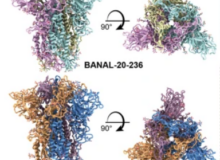Jonathan Latham, PhD and Allison Wilson, PhD
The latest advertising campaign from Monsanto claims that already its “advanced seeds… significantly increase crop yields…”, while since the mid-1990s the biotechnology industry has consistently proposed that higher yielding genetically engineered crops will be necessary to feed the world.
According to Failure to Yield, a new report by the Union of Concerned Scientists, that promise has proven to be a mirage. Despite 20 years of research and 13 years of commercialization, genetic engineering has failed so far to significantly increase U.S. crop yields.
“Failure to Yield” reviews two dozen academic studies of corn and soybeans, the two primary genetically engineered food and feed crops grown in the United States. Based on those studies, UCS concludes that genetically engineering herbicide-tolerant soybeans and herbicide-tolerant corn have not increased yields, while insect-resistant corn has improved yields only marginally. The increase in yields for both crops over the last 13 years, the report found, was largely due to traditional breeding or improvements in agricultural practices.
The UCS report therefore debunks the current yield claim, but it also concludes that genetic engineering is unlikely to play a significant role in increasing food production in the foreseeable future.
In addition to evaluating genetic engineering’s record, “Failure to Yield” considers the technology’s potential role in increasing food production over the next few decades. The report does not discount the possibility of genetic engineering eventually contributing to increase crop yields. It does, however, suggest that it makes little sense to support genetic engineering at the expense of technologies that have already proven to substantially increase yields, especially in many developing countries. In addition, recent studies have shown that organic and similar farming methods that minimize the use of pesticides and synthetic fertilizers can more than double crop yields at little cost to poor farmers in such developing regions as Sub-Saharan Africa.
The report recommends that the U.S. Department of Agriculture, state agricultural agencies, and universities increase research and development for proven approaches to boost crop yields. Those approaches should include modern conventional plant breeding methods, sustainable and organic farming, and other sophisticated farming practices that do not require farmers to pay significant upfront costs. The report also recommends that U.S. food aid organizations make these more promising and affordable alternatives available to farmers in developing countries.
Charles Benbrook of the The Organic Center says that a low contribution of GMOs to yield is perhaps anyway to be expected. Firstly, yield is a complex trait which probably will prove difficult to manipulate directly, but also that “although increases in yield are usually credited to plant breeders, actually many factors contribute to yield, such as soil quality and water management improvements and it is to these we should be looking for future agricultural improvements”.



